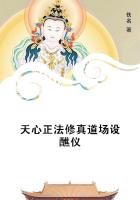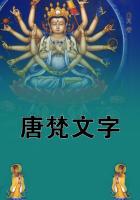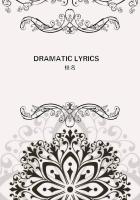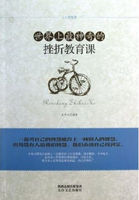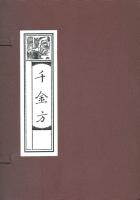As to the dishonesty which is said to be so common among the Russian commercial classes, it is difficult to form an accurate judgment. That an enormous amount of unfair dealing does exist there can be no possible doubt, but in this matter a foreigner is likely to be unduly severe. We are apt to apply unflinchingly our own standard of commercial morality, and to forget that trade in Russia is only emerging from that primitive condition in which fixed prices and moderate profits are entirely unknown. And when we happen to detect positive dishonesty, it seems to us especially heinous, because the trickery employed is more primitive and awkward than that to which we are accustomed. Trickery in weighing and measuring, for instance, which is by no means uncommon in Russia, is likely to make us more indignant than those ingenious methods of adulteration which are practised nearer home, and are regarded by many as almost legitimate. Besides this, foreigners who go to Russia and embark in speculations without possessing any adequate knowledge of the character, customs, and language of the people positively invite spoliation, and ought to blame themselves rather than the people who profit by their ignorance.
All this, and much more of the same kind, may be fairly urged in mitigation of the severe judgments which foreign merchants commonly pass on Russian commercial morality, but these judgments cannot be reversed by such argumentation. The dishonesty and rascality which exist among the merchants are fully recognised by the Russians themselves. In all moral affairs the lower classes in Russia are very lenient in their judgments, and are strongly disposed, like the Americans, to admire what is called in Transatlantic phraseology "a smart man," though the smartness is known to contain a large admixture of dishonesty; and yet the vox populi in Russia emphatically declares that the merchants as a class are unscrupulous and dishonest. There is a rude popular play in which the Devil, as principal dramatis persona, succeeds in cheating all manner and conditions of men, but is finally overreached by a genuine Russian merchant. When this play is acted in the Carnival Theatre in St. Petersburg the audience invariably agrees with the moral of the plot.
If this play were acted in the southern towns near the coast of the Black Sea it would be necessary to modify it considerably, for here, in company with Jews, Greeks, and Armenians, the Russian merchants seem honest by comparison. As to Greeks and Armenians, I
know not which of the two nationalities deserves the palm, but it seems that both are surpassed by the Children of Israel. "How these Jews do business," I have heard a Russian merchant of this region exclaim, "I cannot understand. They buy up wheat in the villages at eleven roubles per tchetvert, transport it to the coast at their own expense, and sell it to the exporters at ten roubles!
And yet they contrive to make a profit! It is said that the Russian trader is cunning, but here 'our brother' [i.e., the Russian] can do nothing." The truth of this statement I have had abundant opportunities of confirming by personal investigations on the spot.
If I might express a general opinion regarding Russian commercial morality, I should say that trade in Russia is carried on very much on the same principle as horse-dealing in England. A man who wishes to buy or sell must trust to his own knowledge and acuteness, and if he gets the worst of a bargain or lets himself be deceived, he has himself to blame. Commercial Englishmen on arriving in Russia rarely understand this, and when they know it theoretically they are too often unable, from their ignorance of the language, the laws, and the customs of the people, to turn their theoretical knowledge to account. They indulge, therefore, at first in endless invectives against the prevailing dishonesty;
but gradually, when they have paid what Germans call Lehrgeld, they accommodate themselves to circumstances, take large profits to counterbalance bad debts, and generally succeed--if they have sufficient energy, mother-wit, and capital--in making a very handsome income.
The old race of British merchants, however, is rapidly dying out, and I greatly fear that the rising generation will not be equally successful. Times have changed. It is no longer possible to amass large fortunes in the old easy-going fashion. Every year the conditions alter, and the competition increases. In order to foresee, understand, and take advantage of the changes, one must have far more knowledge of the country than the men of the old school possessed, and it seems to me that the young generation have still less of that knowledge than their predecessors. Unless some change takes place in this respect, the German merchants, who have generally a much better commercial education and are much better acquainted with their adopted country, will ultimately, I believe, expel their British rivals. Already many branches of commerce formerly carried on by Englishmen have passed into their hands.
It must not be supposed that the unsatisfactory organisation of the Russian commercial world is the result of any radical peculiarity of the Russian character. All new countries have to pass through a similar state of things, and in Russia there are already premonitory symptoms of a change for the better. For the present, it is true, the extensive construction of railways and the rapid development of banks and limited liability companies have opened up a new and wide field for all kinds of commercial swindling; but, on the other hand, there are now in every large town a certain number of merchants who carry on business in the West-European manner, and have learnt by experience that honesty is the best policy. The success which many of these have obtained will doubtless cause their example to be followed. The old spirit of caste and routine which has long animated the merchant class is rapidly disappearing, and not a few nobles are now exchanging country life and the service of the State for industrial and commercial enterprises. In this way is being formed the nucleus of that wealthy, enlightened bourgeoisie which Catherine endeavoured to create by legislation;
but many years must elapse before this class acquires sufficient social and political significance to deserve the title of a tiers-
etat.


